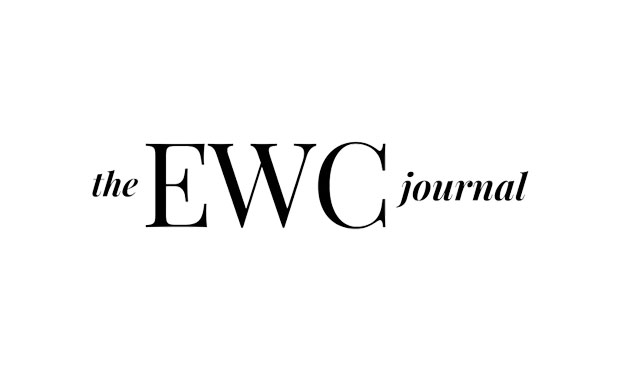- Home
- News
- On the Fitz
- Anthologies
- Reading Corner




- Home
- News
- On the Fitz
- Anthologies
- Reading Corner
Log in / Sign up
- community959
-
- Jul 14, 2021
- 4 min read
Spy Agencies Turn to Scientists as They Wrestle With Mysteries
By Moya Zhao
Due to the increase of enigmatic, indecipherable questions, the nation’s intelligence agencies are beginning to gain more knowledge beyond the scope of their previous scientific disciplines. There have been inquiries surrounding the origination of the Covid-19 pandemic, multiple unexplainable phenomena, and strange health problems that have become common amongst spies, diplomats and important figures alike world-wide. The problems are only becoming more and more apparent than before.
With the conventional means of spycraft having failed to meet the standards necessary, to many officials, the need for more information, the union of intelligence and examinations in a scientific sense have to become more advanced than they were prior to many major global affairs.
The Biden administration (specifically those in the intelligence department) has begun working on areas that have been mainly influenced by science. This includes the preparation and further understanding of climate change, and the study of security implications for future pandemics. However, there are now challenges and other issues that have been forced to be confronted surrounding traditional intelligence.
The intelligence community has until late summer to investigate and report the Coronavirus’ origin, diving into the theory it was from a Chinese lab leak, as well as the more widely accepted hypothesis that it had been transmitted from animals to humans.
In addition to their pledge towards the congress referring to the examining of climate change and the pandemic, the administration has also guaranteed that they will look into puzzling health ailments that have clearly become much bigger of an issue, affecting important ambassadors and intelligence officers that has now been given the title of Havana syndrome. Lastly, they have also pledged towards a preparatory investigation into unidentifed flying objects and phenomena that didn’t account for unrequited encounters from military aviators that have raised hermeneutics of suspicions.
The Office of the Director of National Intelligence enabled a knowledgeable epidemiologist to work with them on the National Intelligence Council, only further incorporating science into their expertise. Furthermore, the office had also created two groups to investigate disruptive technology and climate change, respectively.
The assembly constructed with the C.I.A., The National Security Council, and the director of National Intelligence have also acquired two groups who were experiencing the many typical symptoms of Havana syndrome. That included fatigue, vertigo, and unforeseen memory loss with scientists investigating classified intelligence to find the genesis of the brain damage. And in the words of the White House, the work reflects “a broader priority on science and technology.” This would mean that the panels would correspondingly focus on causes and the other focused on advancing devices to combat dangers and protect personnel.
The importance of science has roots dated back to Mesopotamia and Ancient Egypt since thousands of years before Christ, and has been specifically important to contemporary U.S intelligence agencies during the Cold War. Analysts and scientists alike had been able to develop their comprehension of military weapons through examining those of their adversaries. There were synthetic and biological weapons as well as nuclear missiles, their talent in these engineering segments when they created tools and counterspy satellites. Though after recent occurrences, there was a new range required and thus, certain areas have needed to be further investigated.
With this at hand, they now needed to come to a conclusion about how to improve the current state of climate change while scrambling to fix questions about security and many are pushing for experienced undergraduates to be incorporated in their research. That way, there would be more range in both the people and specialties. The initiatives would be much broader and that with extensive more belligerent questioning, their group of around 500 volunteer scientists who were all rushing to find answers to bewildering scientific questions.
However, there are still many differences in other cases. For example, the Trump administration had authorized for both the departments of Engineering and Medicine and the National Academies of Science to scrutinize the syndrome. Even if the scientists had not been given the complete scope of material, they were able to come to the conclusion that it was quite possibly due to the microwave oven, though this was later hindered because of the lack of information.
Meanwhile, the two panels have been sanctioned to access the full compass of information, and they are still pushing to be granted access to material that wasn’t allowed to them in prior studies. The government is continuing to examine episodes of Havana syndrome to learn more about it with other technical experts deducing more information about how it is contracted and the potential causes of it.
There are still suspicions over Havana syndrome despite the number of victims censuring them for not taking it seriously enough though the director of the C.I.A. William J. Burns has put it as a top precedent. Though scientific research has shown to be a strength, some still argue problems need a different approach with more outside people being used as ‘open sourced’ information.
Sources:
Barnes, Julian E. “Spy Agencies Turn to Scientists as They Wrestle with Mysteries.” The New York Times, 8 July 2021, www.nytimes.com/2021/07/08/us/politics/intelligence-agencies-science.html#:~:text=Spy%20 Agencies%20Turn%20to%20 Scientists%20as%20They%20 Wrestle. Accessed 13 July 2021.











